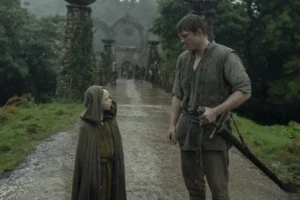Summary
Another solid true-crime documentary for Netflix delves into a case of corruption and murder in Mexico.
If there’s one thing you can rely on Netflix for it’s true-crime and a consistent depiction of Mexico as a lawless frontier. After the incredible success of American Murder: The Family Next Door, the streaming giant’s latest feature, The Three Deaths of Marisela Escobedo, returns to the bottomless true-crime well to examine a case involving Mexico, systemic corruption, and violence against women. If that isn’t a recipe for success then I don’t know what is.
Pardon my flippancy, of course, since the regularity at which women are murdered by men who subsequently go unpunished is distressing, and in our current political climate, citizens have been more compelled than ever to protest against obvious abuses of power in the institutions ostensibly in place to protect them. This film is important, and there’s no better time for it.
Marisela Escobedo’s 16-year-old daughter Ruby Frayre was murdered by Sergio Rafael Barraza Bocanegra, who subsequently admitted to the crime and identified the location of her body but was nonetheless acquitted due to a lack of evidence, leading to an understandable national outrage and a wave of social activism that Marsela, a Chihuahua City resident, was at the center of. This led to the state authorities overturning the verdict but not to Sergio being brought to justice, and in 2010, Marisela was shot and killed by an unknown assassin.
This is obviously a fascinating and heinous case on many levels, so it’s easy to wish it was given the miniseries treatment rather than a single 110-minute feature – at least until you realize that feature already sags in parts. That’s enough time to point an incredibly accusatory finger at the Mexican government, however, even if there’s an effort made to balance out the clearly unjust outcome of the court case with depressing legal realities, such as the inability of self-incriminating admissions to stand without evidence.
Nevertheless, the point is clearly made, and Marsela is reliably framed as the one making it the loudest. This is integral to her story; her daughter was killed, justice was not done on her behalf, and Marsela was eventually killed in the pursuit of it. Yet in her life and her death, she inspired people to fight against the system, to stand up for what they believe, and to scream until their voices are heard. Marsela’s own voice might have been cut off well before its time, but its echoes are still heard today.



